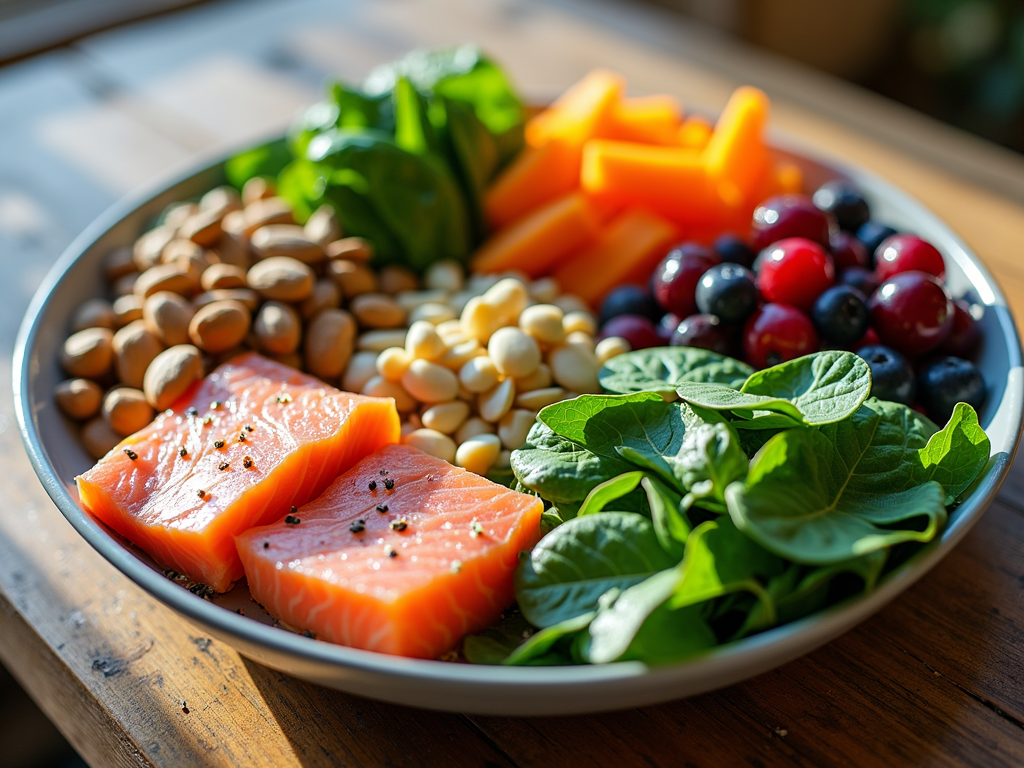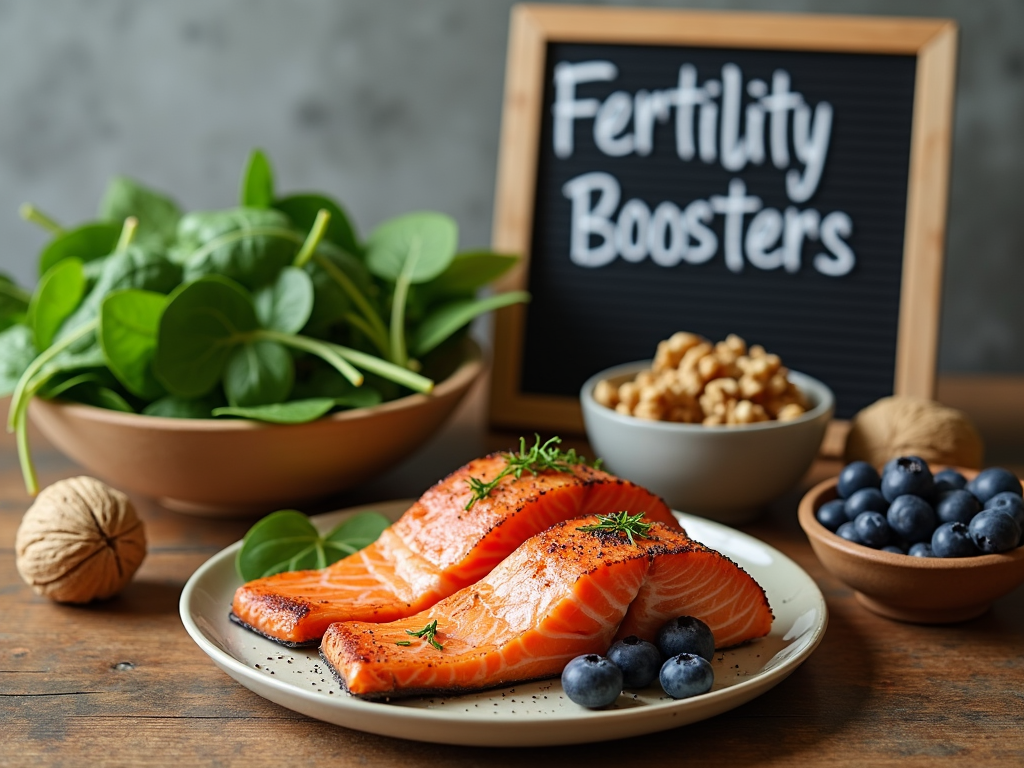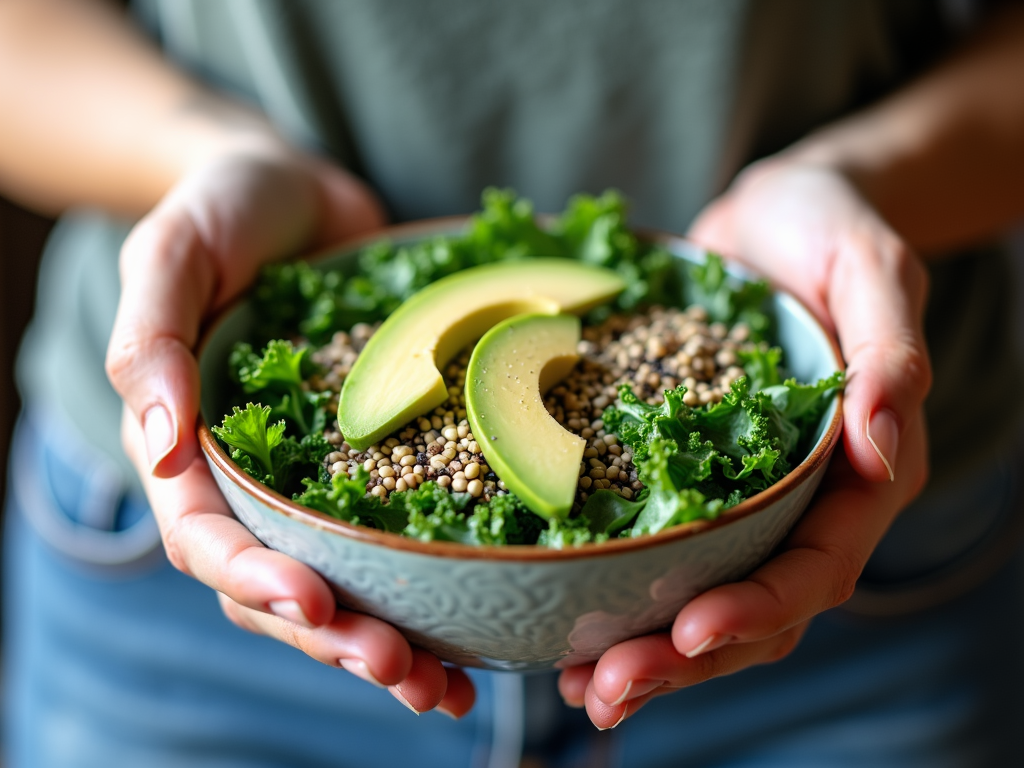The Role of Nutrition in Fertility Health: A Comprehensive Guide
March 10, 2025, 8:26 a.m.
Overview
What you eat can shape your fertility journey. The Role of Nutrition in Fertility Health is huge—it affects hormone balance, egg and sperm quality, and your overall reproductive wellness. For women over 40, fertility preservation becomes vital as age naturally lowers fertility. This guide uncovers how smart food choices can boost your chances of conceiving.
Let’s face it—trying to conceive can feel overwhelming. Between doctor visits and endless advice, it’s easy to overlook something as simple as your diet. But here’s the truth: nutrition matters. It’s not just about popping a prenatal vitamin. What you put on your plate every day can directly impact your fertility health. I’ve seen this firsthand with a friend who transformed her eating habits in her late 30s and finally welcomed her baby after years of trying.

Why Nutrition Matters for Fertility
Fertility isn’t just about luck—it’s about giving your body what it needs. Good nutrition fuels hormone production, keeps ovulation on track for women, and boosts sperm health for men. When your diet lacks key nutrients, things can go off-balance fast. Think of it like a car: without the right fuel, it won’t run smoothly.
For women over 40, time adds extra pressure. Your egg supply shrinks as you age, and the ones left might not be as strong. But studies show a nutrient-rich diet can help. It won’t turn back the clock, but it can improve egg quality and raise your odds of success. That’s what fertility preservation for women over 40 is all about—taking action now to protect your future.

Must-Have Nutrients for Fertility
Not all foods are equal when it comes to fertility. Here’s a rundown of the top nutrients you need:
- Folic Acid: Helps cells grow and is critical early in pregnancy. Aim for 400 micrograms daily from leafy greens or supplements.
- Zinc: Keeps hormones in check and supports ovulation and sperm health. Find it in nuts, seeds, and lean meats.
- Omega-3 Fatty Acids: Boosts blood flow to reproductive organs. Salmon, chia seeds, and walnuts are great sources.
- Iron: Low levels can mess with fertility. Load up on spinach, beans, and red meat.
- Vitamin D: Balances hormones and aids fertility treatments. Get it from sunlight or fortified foods.
Here’s a quick table to keep it simple:
| Nutrient | Benefit | Best Sources |
|---|---|---|
| Folic Acid | Cell growth | Leafy greens, citrus |
| Zinc | Hormone balance | Nuts, seeds, meat |
| Omega-3s | Blood flow | Fish, flaxseeds |
| Iron | Prevents infertility | Spinach, lentils |
| Vitamin D | Hormone support | Sunlight, fortified milk |
Stick to whole foods and skip the junk—processed snacks and sugary drinks can throw your hormones out of whack.

Eating Smart for Women Over 40
For women over 40, fertility preservation isn’t just a buzzword—it’s a goal. Aging affects your eggs, but nutrition can step in to help. Picture this: Sarah, 42, had been trying to conceive for two years. She switched to a diet packed with antioxidants and protein, and within months, her energy soared—and so did her hope.
Here are some tips tailored for women in their 40s:
- Load Up on Antioxidants: Fight age-related damage with berries, nuts, and dark chocolate.
- Boost Protein: Eggs, chicken, and beans support egg quality.
- Drink Water: Stay hydrated to keep everything flowing smoothly.
- Cut Back on Caffeine: Too much coffee can hurt fertility—stick to one cup.
- Try Supplements: CoQ10 might improve egg health, but check with your doctor first.
Weight matters too. Being too thin or too heavy can disrupt ovulation. Pair your diet with light exercise—like a daily walk—and you’re on the right track.

Beyond Food: Lifestyle Tweaks for Fertility
Nutrition is a big piece of the puzzle, but it’s not the only one. Your daily habits can make or break your fertility health. Smoking? Quit now—it harms eggs and sperm. Stressed out? Try meditation—chronic worry can stop ovulation in its tracks.
Sleep is another biggie. Aim for 7-9 hours a night to keep hormones steady. And watch out for toxins—swap plastic containers for glass and go organic when you can. Small changes add up fast.

Real Stories, Real Results
I’ll never forget my cousin’s struggle with infertility. At 38, she felt defeated. Doctors couldn’t pinpoint why she wasn’t conceiving. Then she overhauled her diet—more greens, less sugar—and added yoga to her routine. A year later, she was pregnant. It wasn’t magic; it was nutrition and persistence working together.
That’s the thing about fertility—it’s personal. What works for one person might not for another. But giving your body the right fuel? That’s a universal win.

Summary
The Role of Nutrition in Fertility Health is a game-changer. From folic acid to omega-3s, the right foods can boost your reproductive health and fight infertility. For women over 40, fertility preservation through diet is a powerful tool to defy the odds. Start today—add these nutrients, tweak your lifestyle, and talk to a doctor for a plan that fits you. Your fertility future is in your hands.